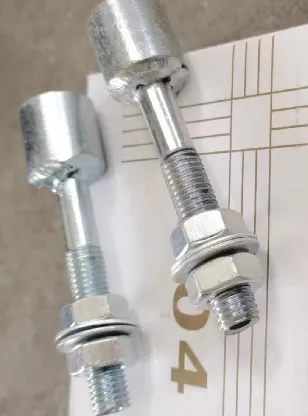loading...
- No. 9, Xingyuan South Street, Dongwaihuan Road, Zaoqiang County, Hengshui, Hebei, China
- admin@zjcomposites.com
- +86 15097380338
- Welcome to visit our website!
Exploring the Properties and Applications of a 1054 FRP Vessel in Industrial Settings
The Cutting-Edge 1054 FRP Vessel Revolutionizing Fluid Storage Solutions
In the realm of industrial fluid storage, the 1054 FRP (Fiber Reinforced Plastic) vessel stands out as a paragon of modern engineering and material science. As industries increasingly demand robust, reliable, and long-lasting storage solutions, the 1054 FRP vessel offers an exemplary balance of these attributes.
The 1054 FRP vessel is fundamentally constructed using fiber-reinforced plastic, a composite material known for its remarkable strength-to-weight ratio and corrosion resistance. Unlike traditional materials such as steel or concrete, FRP demonstrates superior resilience in harsh environmental conditions, including exposure to chemicals, extreme temperatures, and UV radiation. This intrinsic property of FRP materials ensures that the 1054 vessel can maintain structural integrity and operational reliability over extended periods, ultimately reducing maintenance costs and downtime.
The Cutting-Edge 1054 FRP Vessel Revolutionizing Fluid Storage Solutions
Weight is another significant advantage of FRP over traditional materials. The lightweight nature of the 1054 FRP vessel facilitates ease of transportation and installation, reducing associated costs and logistical challenges. Moreover, the reduced weight does not compromise the vessel’s performance; instead, it enhances the efficiency in scenarios where weight considerations are critical, such as in offshore applications or mobile processing units.
1054 frp vessel

The environmental impact of industrial processes is a growing concern, and the 1054 FRP vessel contributes positively in this regard. The production of FRP vessels results in lower carbon emissions compared to the manufacturing of steel or concrete alternatives. Additionally, the long service life and minimal maintenance requirements of the FRP vessel contribute to a lower environmental footprint over its lifecycle. The material is also resistant to biofouling, eliminating the need for harmful chemical treatments and further reducing ecological impact.
Economic factors also favor the adoption of the 1054 FRP vessel. While initial costs may be slightly higher than some traditional materials, the total cost of ownership is significantly lower. This is attributed to its durability, reduced maintenance, and longevity. Industries can enjoy a greater return on investment, making it a financially sound choice.
In terms of safety, the 1054 FRP vessel excels due to its inherent properties. FRP is non-conductive, which makes it an ideal choice for storage in electrically sensitive environments. Additionally, its resistance to crack propagation ensures that minor damages do not escalate into catastrophic failures, thus enhancing operational safety.
In conclusion, the 1054 FRP vessel represents a significant leap forward in the field of industrial fluid storage solutions. Its combination of strength, versatility, environmental benefits, and economic efficiency make it an indispensable asset for modern industries. As technology continues to evolve, further innovations in FRP materials and manufacturing techniques are expected, solidifying the position of the 1054 FRP vessel as an industry cornerstone.
-
Premium FRP Handrail for All ApplicationsNewsAug.29,2025
-
Low Maintenance FRP Mini Mesh Grating ProductsNewsAug.29,2025
-
Innovative FRP Square Tubes for Modern Industrial SolutionsNewsAug.29,2025
-
FRP Water Storage Tanks Wholesale Solutions for Bulk BuyersNewsAug.29,2025
-
FRP Molded Grating Solutions for Diverse Industrial ApplicationsNewsAug.29,2025
-
Construction Advancements Through FRP Pultruded ProfilesNewsAug.29,2025
-
Why Choose FRP Railings, Guardrails, and Handrail Systems?NewsAug.29,2025
